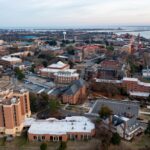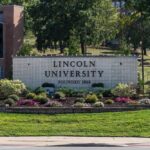
University pioneers Southern Black innovation in cannabis education and equity
Alabama State University has stepped into a rapidly evolving frontier—cannabis education—and it’s doing so with clarity, courage, and cultural awareness. In 2022, ASU became the first historically Black college or university (HBCU) in the South to launch an accredited program in cannabis science. Three years later, it’s building a model for education, equity and economic empowerment that other institutions are now racing to replicate.
With a state-certified curriculum and active community engagement, Alabama State’s cannabis program bridges classroom knowledge with real-world impact. From entrepreneurship to compliance, its students are gaining critical skills to enter—and disrupt—one of the fastest-growing industries in America.
A Southern HBCU Steps Into the Spotlight
The announcement initially raised eyebrows. Alabama, a state long associated with conservative politics and strict drug laws, seemed an unlikely ground zero for HBCU-led cannabis innovation. But ASU leaned into the moment. In partnership with BLP Education Services and industry experts, the university offered a 16-week course that positioned students for careers in cultivation, distribution, quality control and business development.
The course was approved by Alabama’s Medical Cannabis Commission, making it one of the few state-certified cannabis education programs in the country—and the only one based at a Southern HBCU.
The move was both pragmatic and progressive. As the cannabis industry expands—with U.S. sales projected to surpass $40 billion by 2027—ASU saw an opportunity to carve out space for Black professionals historically locked out of the conversation.
Creating Economic Pathways in a Billion-Dollar Industry
The cannabis industry has not been kind to communities of color—many of whom are still serving sentences for non-violent marijuana offenses in states where recreational cannabis is now legal. By training the next generation of Black professionals to lead in the field, ASU’s program responds to systemic inequity with solution-driven education.
The curriculum includes modules on:
- Cannabis law and policy
- Seed-to-sale logistics
- Health applications and pharmaceutical development
- Regulatory compliance
- Business ownership and entrepreneurship
Students receive a certificate of completion, preparing them to pursue licensure or launch cannabis-related ventures in agriculture, retail, or tech. The goal is economic empowerment, not just academic credit.
A Broader Mission: Education Meets Advocacy
Alabama State’s focus isn’t just career preparation—it’s cultural transformation. Faculty leaders believe education is a powerful tool to reduce stigma around cannabis, particularly in Black communities where misinformation and historic criminalization have fueled fear and confusion.
By rooting the program in science and community-based application, ASU reframes cannabis as a legitimate, profitable, and socially transformative field. It’s not about promoting drug use—it’s about reclaiming opportunity.
Students learn how cannabis can be used medicinally for conditions like chronic pain, PTSD and epilepsy. They’re also taught how to address policy challenges and public perception—skills that matter as legalization efforts continue across the South.
Alabama State Leads Where Others Follow
Since launching its program, ASU has gained national recognition. Other HBCUs—such as Southern University in Louisiana and Medgar Evers College in New York—have joined the movement, developing similar coursework and advocacy arms.
But ASU’s Southern footprint and early licensing advantages set it apart. It’s one of the few schools working directly with both regulators and community groups to develop inclusive industry access.
ASU’s program aligns with broader national conversations around reparative justice and Black ownership in cannabis. As more states legalize medical and recreational use, the fight for equity in licensing, funding, and real estate intensifies. ASU isn’t just preparing students for jobs—it’s equipping them to be founders, policy experts and changemakers.
A Cannabis Curriculum Rooted in Purpose
At its core, Alabama State’s program is about reclaiming power through education. It provides a pathway for Black students to thrive in a sector that has long excluded them—often criminalizing them instead.
By offering accredited, state-backed training that intersects law, science, and business, the university is planting seeds for generational wealth and community restoration. Whether students want to be growers, dispensary owners, legal analysts or researchers, the program gives them the tools and legitimacy to lead.
It’s no longer a question of if Black students belong in cannabis—it’s a matter of how far they’ll go once given a real chance.
Sort By
 Register for exclusive access to VIP events and more
Register for exclusive access to VIP events and more
Sign up for periodic updates, special discounts, and more!






















